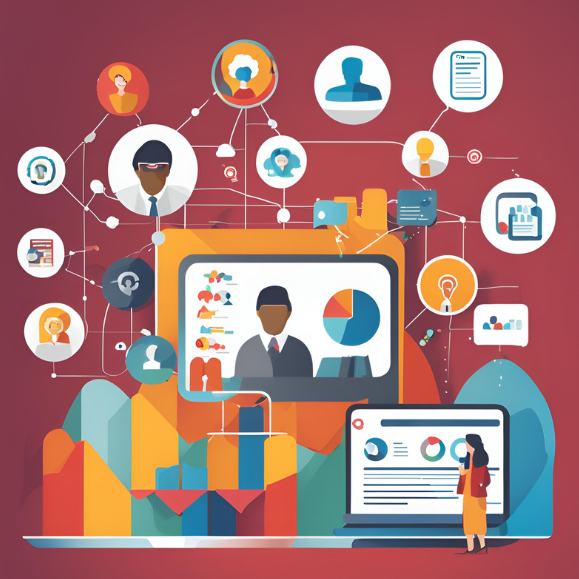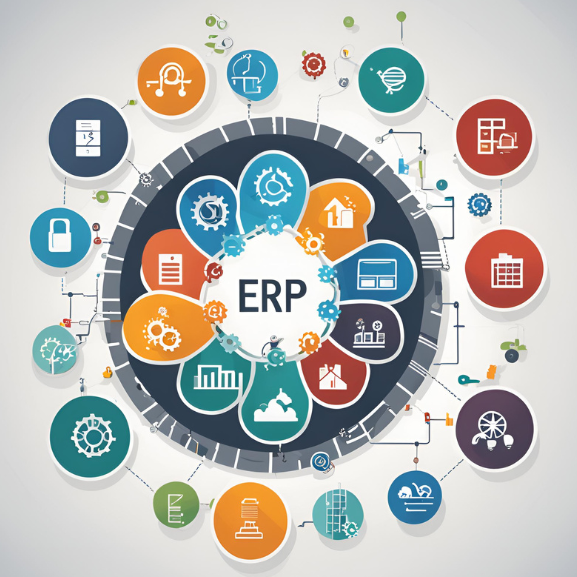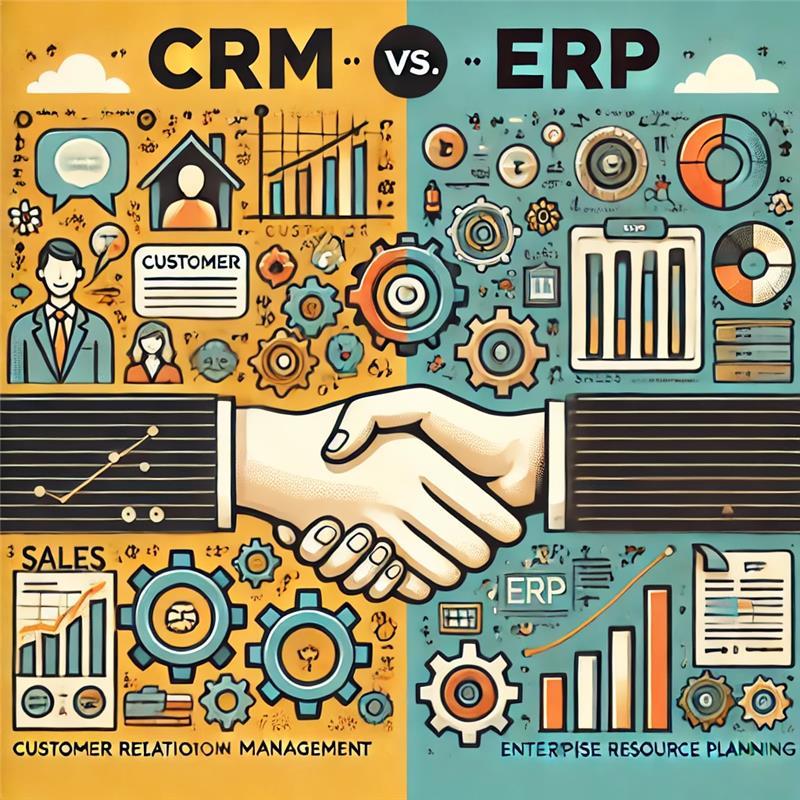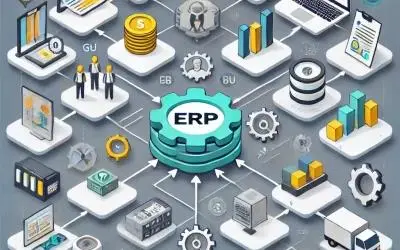In the business world, technology plays a crucial role in optimizing processes and improving productivity. Two key tools that help companies grow and manage their operations efficiently are CRM (Customer Relationship Management) and ERP (Enterprise Resource Planning) systems. Companies often find themselves wondering which of these solutions they need to achieve their goals.
In this blog post, we'll explore the differences between CRM and ERP, their benefits, and which one may be best suited for your business based on its needs.
1. What is a CRM?
CRM, or Customer Relationship Management, is a tool designed to centralize and manage all interactions between a company and its customers. The main objective of CRM is to improve customer relationships, increasing satisfaction, retention, and sales.
Key features of a CRM:
- Contact Management: Maintain an up-to-date database of customer information.
- Interaction tracking: Monitor emails, calls, meetings, and any other type of communication.
- Opportunity Management: Identify and prioritize sales opportunities.
- Marketing Automation: Create targeted and personalized campaigns for potential and existing customers.
- Analytics and Reporting: Generate detailed reports on sales performance and the effectiveness of marketing campaigns.
Advantages of CRM:
- Improve sales by centralizing customer information.
- Allows you to personalize interactions and marketing campaigns.
- Helps predict sales opportunities and purchasing behaviors.
CRM is ideal for companies that want to optimize customer relationship management and increase the effectiveness of their sales and marketing teams.

2. What is an ERP?
ERP, or Enterprise Resource Planning, is a comprehensive solution that manages various operational aspects of a business, from accounting and finance to inventory and human resources management. Its goal is to integrate all internal processes into a single system, optimizing operational efficiency.
Key features of an ERP:
- Financial management: Controls and manages cash flow, budgets, and accounting.
- Inventory and supply chain management: Monitor stock, purchases, and shipping.
- Production management: Optimize manufacturing, planning and quality control.
- Human Resources: Manages payroll, hiring, and monitoring staff performance.
- Project management: Facilitates the planning, execution and monitoring of projects.
Advantages of ERP:
- Centralizes all operational processes in a single platform.
- Reduce operating costs by optimizing the supply chain and production.
- Improve decision-making with real-time data from all areas of the business.
ERP is best suited for companies that need an integrated solution to manage the complexity of their internal operations, especially those that are growing rapidly or have multiple departments.

3. Key differences between CRM and ERP
While both CRM and ERP are technological tools for improving business efficiency, each focuses on different areas of the business:
Characteristics | CRM | ERP |
Main focus | Customer relations and sales | Internal operations management |
Main functions | Sales, marketing and customer service | Bonds, inventory, production, human resources |
Key benefit | Improve relationships and increase sales | Optimize operational efficiency |
Main users | Sales and marketing teams | All departments, especially accounting and operations |

4. What does your business need?
The choice between a CRM and an ERP depends on your company's priorities and needs:
- If your focus is on sales growth and improving customer relationships, a CRM will be the most appropriate tool. For example, if your sales team needs better contact organization and more effective opportunity follow-up, a CRM can help you increase revenue.
- If your business is growing and you need better control over internal operations, such as inventory management, finance, or human resources, then an ERP is what your business needs. An ERP will allow you to have a holistic view of your company, facilitating decision-making based on integrated data from all operational areas.
5. Can I use both?
Yes, many companies choose to integrate both a CRM and an ERP, as these tools can complement each other. While CRM focuses on improving relationships and increasing sales, ERP optimizes internal efficiency.
A CRM-ERP integration allows information to flow seamlessly between customer management and internal operations, providing a complete and synchronized view of the entire business.
Conclusion
Both CRM and ERP are powerful solutions for improving your business management, but their approaches are different. The key to making the best decision is to evaluate your company's current needs and priorities. If you're looking to optimize your sales and improve the customer experience, a CRM will be your best option. If you need a comprehensive solution to manage all operational areas of your business, an ERP will be more suitable.
However, if your business has an ambitious growth strategy, using both tools could be the ideal solution to ensure efficient operations and a superior experience for your customers.
Categories: Consulting | GRC

Risk Management and Regulatory Compliance: Keys to a Sustainable Business
Ago 22, 2024 | ESC, GRC, Innovation
In an increasingly complex and regulated business environment, risk management and compliance have become fundamental pillars for ensuring the sustainability of any business. Modern organizations must not only focus on...

How ERP Solutions Transform Business Management
Ago 8, 2024 | Consulting
In the era of digitalization and global competition, companies are constantly looking for ways to improve their operational efficiency and maximize their resources. One of the most powerful tools in this regard is ERP (Enterprise Resource Planning) solutions.

Digital Entrepreneurship: How to Start and Scale Your Business in the Digital Age
Ago 16, 2024 | Consulting, Innovación
Digital entrepreneurship has revolutionized the way businesses are created and managed today. With the constant evolution of technology and access to digital tools, entrepreneurship has never been more accessible. However, starting and scaling a business...